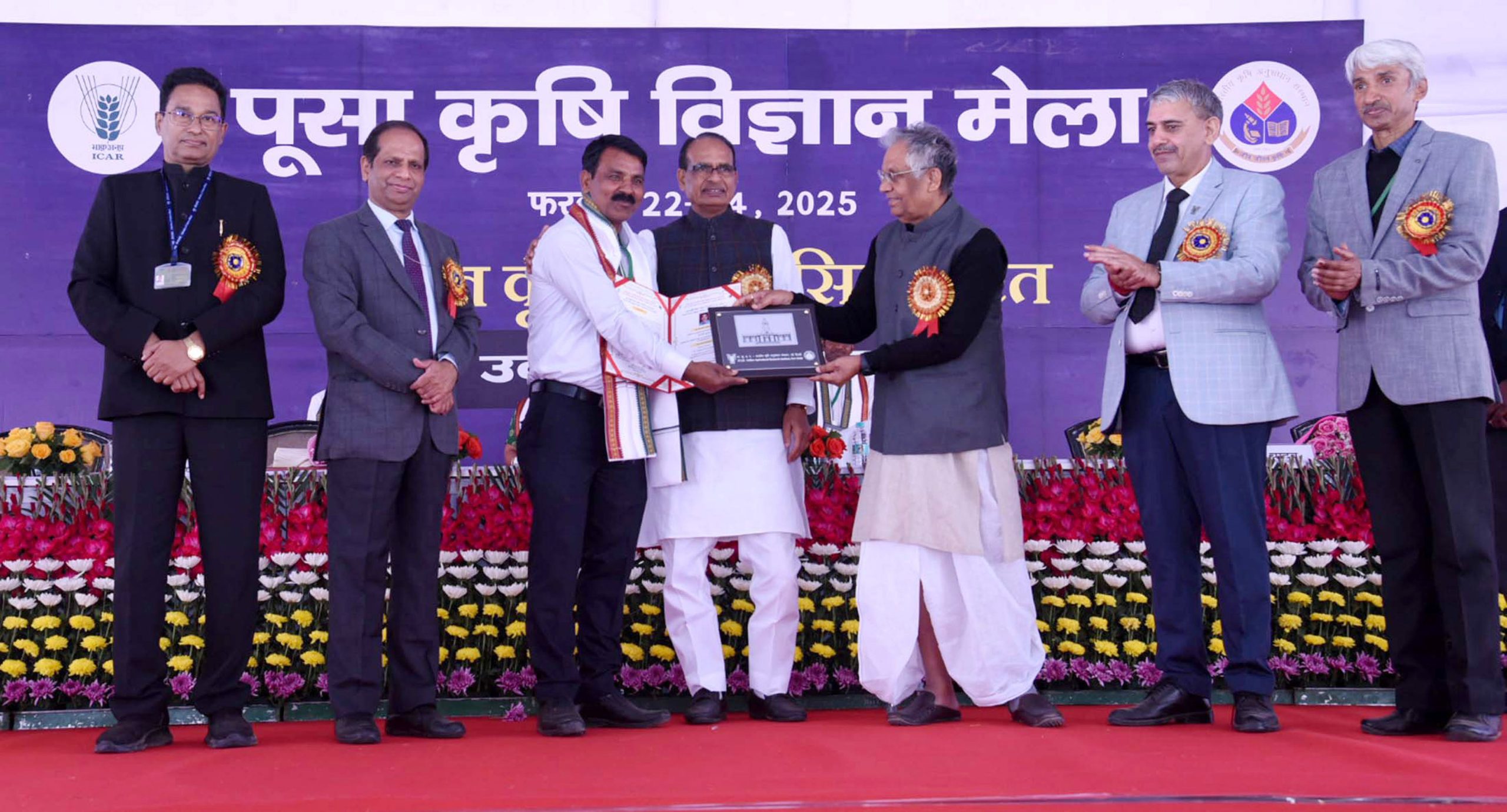NEW DELHI, Feb 22: Union Agriculture Minister Shivraj Singh Chouhan announced on Saturday that the government is implementing measures to prevent farmers from selling their produce, particularly fruits and vegetables, at significantly reduced prices.
During the inauguration of the Pusa Krishi Vigyan Mela 2025, taking place in the capital from February 22-24, he emphasized the importance of swiftly translating new seed varieties and agricultural technology from research laboratories into practical use in the fields.
Chouhan stated that the government is engaging directly with farmers and their organizations to better understand their challenges, which informs the creation of relevant policies and schemes.
“Wherever we see difficulties, we are formulating plans to address them,” the minister remarked, highlighting various initiatives taken by the government in recent years to safeguard farmers’ interests.
He noted that the government has lifted export restrictions on rice and onions while also increasing import duties on edible oils. Chouhan mentioned that support measures are being developed for tomato farmers facing a price collapse, as well as for red chili farmers in Andhra Pradesh.
“I want to assure our farmers that we will take every necessary step for their welfare. There is no need for concern,” he assured, affirming the government’s commitment to prioritizing farmers’ needs.
He further pointed out, “Several issues are currently under review. While farm gate prices are low, consumers are paying high prices. We need to ensure that profit margins decrease and the disparity between farm prices and consumer prices for fruits and vegetables is minimized.”
The minister reiterated, “We are working on strategies to prevent farmers from having to sell their products at throwaway prices.”
Praising the scientists at the Indian Council of Agricultural Research (ICAR) for their efforts in achieving food self-sufficiency in India, Chouhan expressed the urgency of delivering improved seed varieties and technologies to farmers for their benefit.
“Good seed availability is crucial. Farmers require these seeds. ICAR is developing them, and we must ensure they reach farmers swiftly,” he emphasized.
Moreover, he urged ICAR to oversee the ‘Modern Agriculture Chaupal’ program, where scientists will provide farmers with insights into recent technological advancements and offer solutions to their issues. This program will be broadcasted nationwide.
Chouhan mentioned his practice of visiting fields rather than remaining confined to Krishi Bhawan in Delhi, encouraging ministry officials and ICAR scientists to adopt the same approach in understanding farmers’ challenges.
The minister reiterated the government’s focus on increasing agricultural production through yield enhancement, reducing production costs, and ensuring farmers receive fair prices for their products.
He assured that the government is continuing to procure wheat and paddy at Minimum Support Prices (MSP) and will guarantee the purchase of all masoor, urad, and tur dals, aimed at encouraging farmers to cultivate more pulses.
Chouhan highlighted the PM-KISAN scheme, which provides an annual financial assistance of ₹6,000 to 9.8 crore farmers.
He concluded that advancing the agriculture sector and supporting farmers is vital for transforming India into a developed nation by 2047.
Minister of State for Agriculture Ramnath Thakur encouraged ICAR to conduct live demonstrations of new crop varieties and technologies at the village level.
The three-day Pusa Krishi Vigyan Mela, organized by the Indian Council of Agricultural Research – Indian Agricultural Research Institute (ICAR-IARI), is anticipated to attract approximately 100,000 participants, including farmers.
The theme for this year’s event is Unnat Krishi—Viksit Bharat, featuring live demonstrations of new varieties and technologies developed by IARI.
Exhibitions showcasing promising technologies, products, and services from IARI, ICAR institutions, agricultural universities, KVKs (Krishi Vigyan Kendras), farmer producer organizations, entrepreneurs, startups, and both public and private sectors will also be present.
Key highlights include the sale of Pusa seeds for important varieties and on-the-spot agro-advisory services.
At the 2023 event held in Delhi, farmers purchased seeds worth around ₹2.2 crore, and IARI anticipates this year’s figures to exceed that total. The previous year’s event took place in Jharkhand.
Recognizing the increasing importance of climate risk and nutrition, IARI’s research program is focusing on developing climate-resilient crop varieties and bio-fortified cultivars with improved nutrient profiles and higher productivity. (PTI)


Leave a Reply